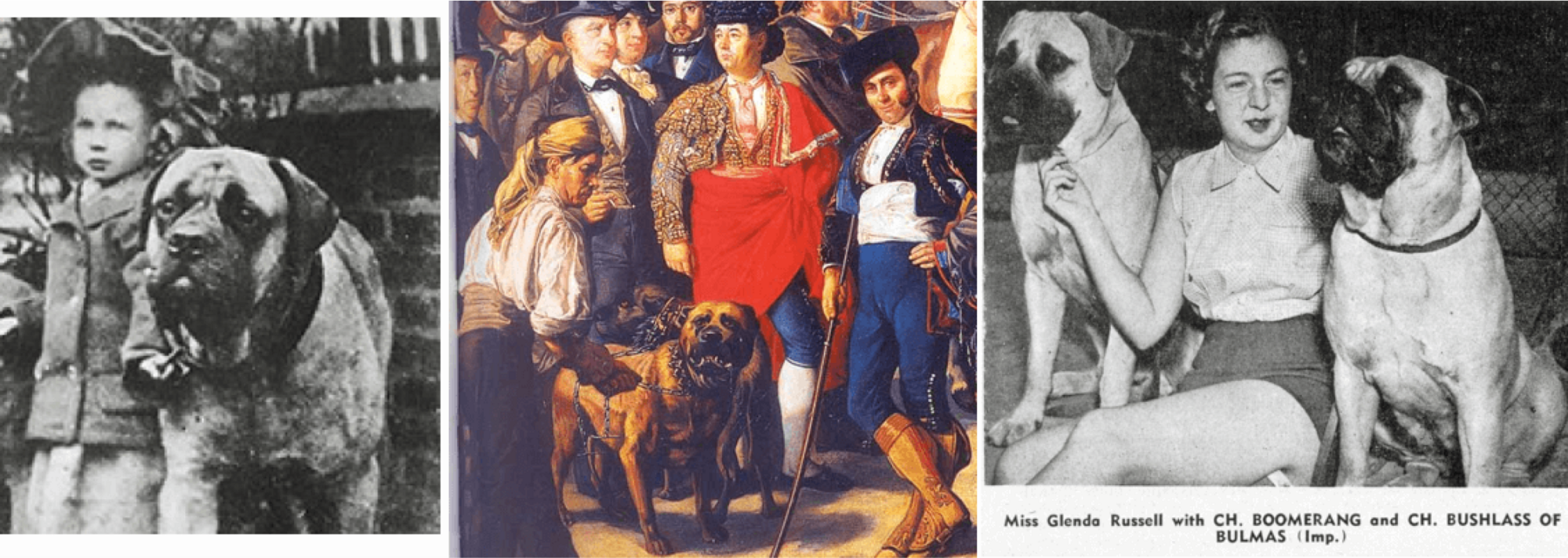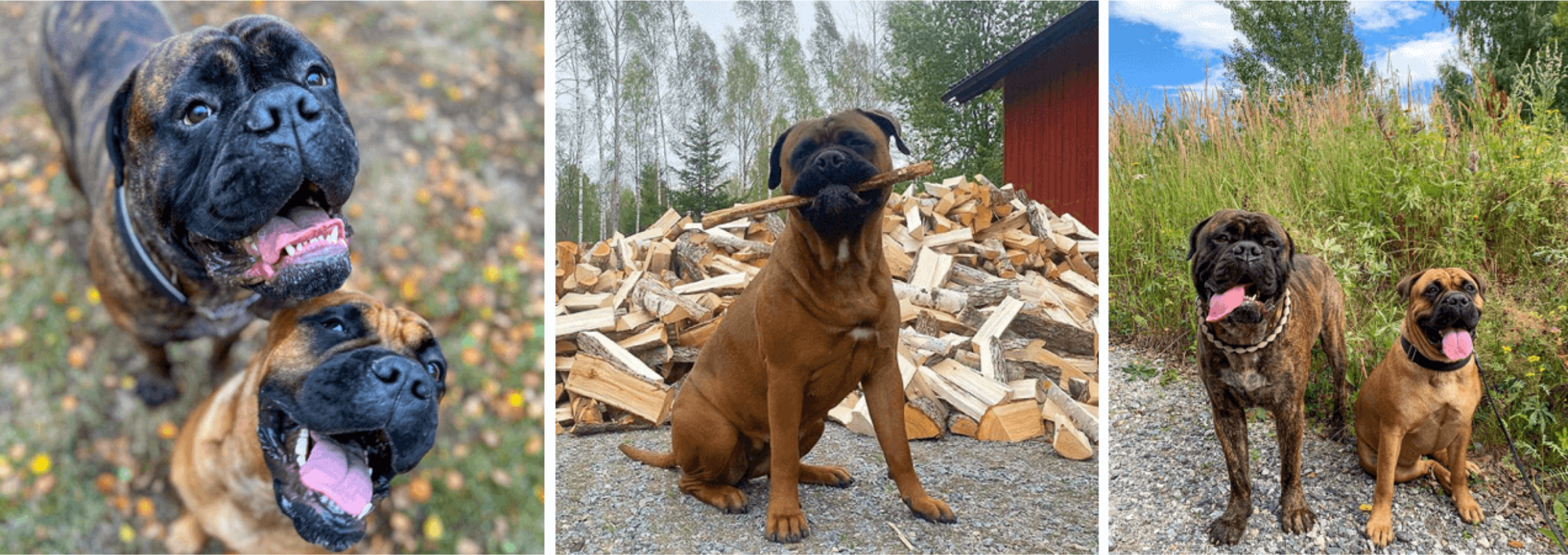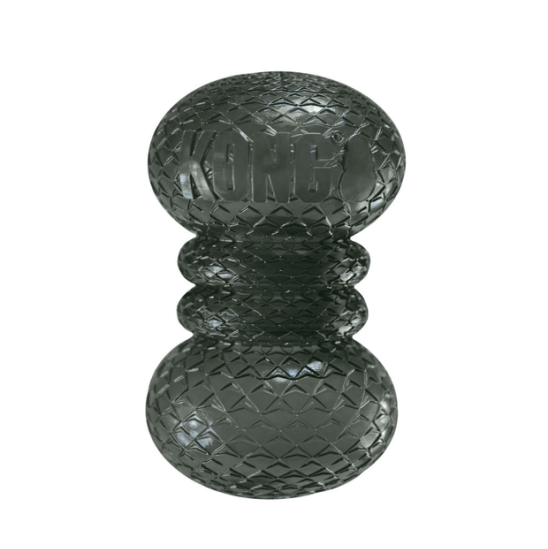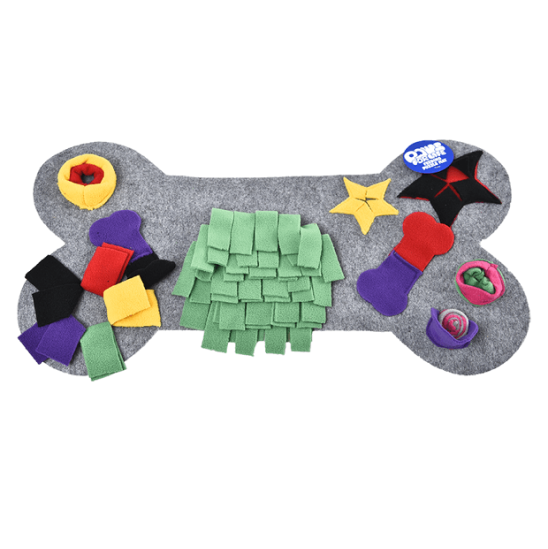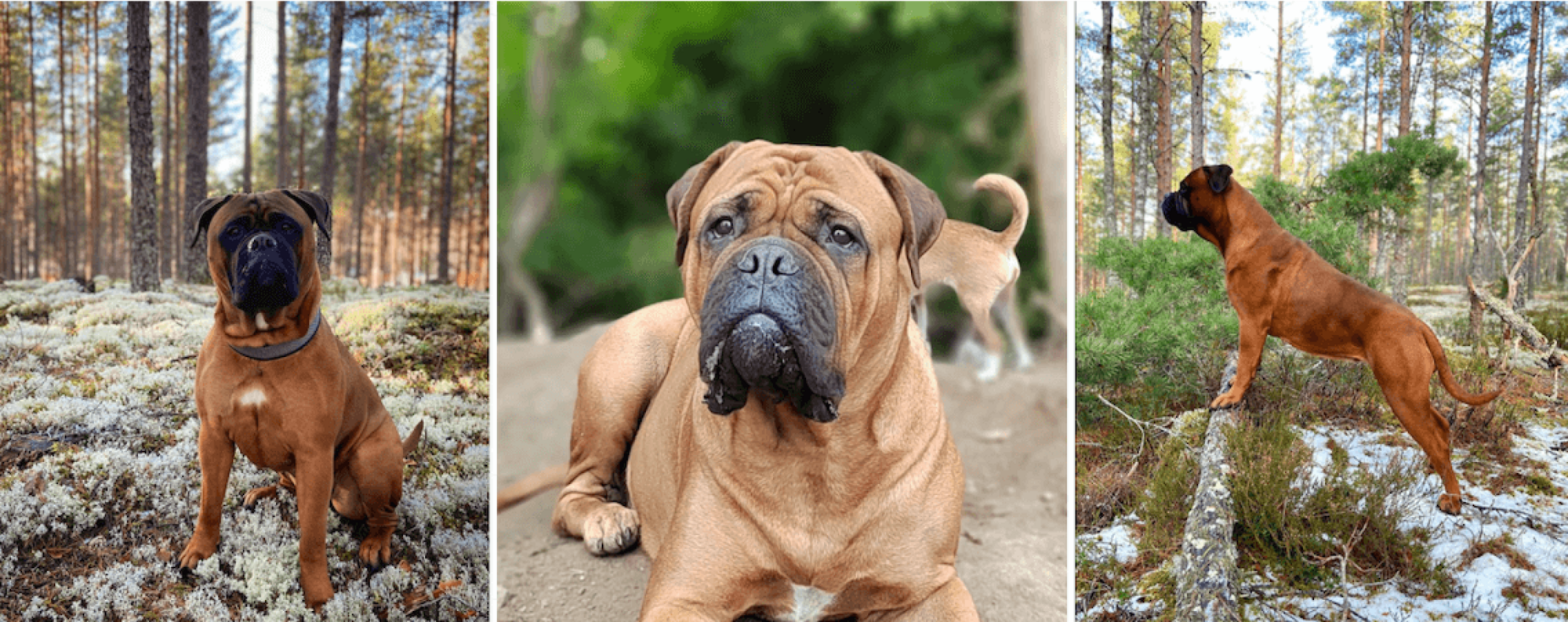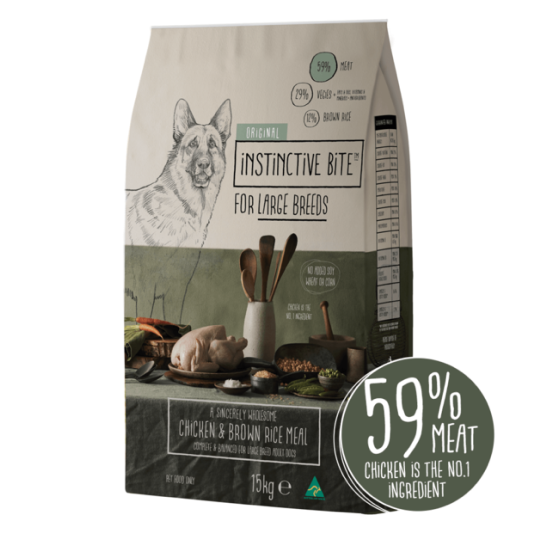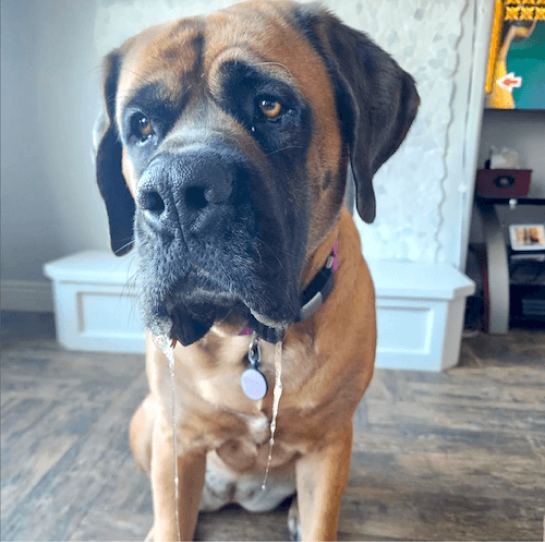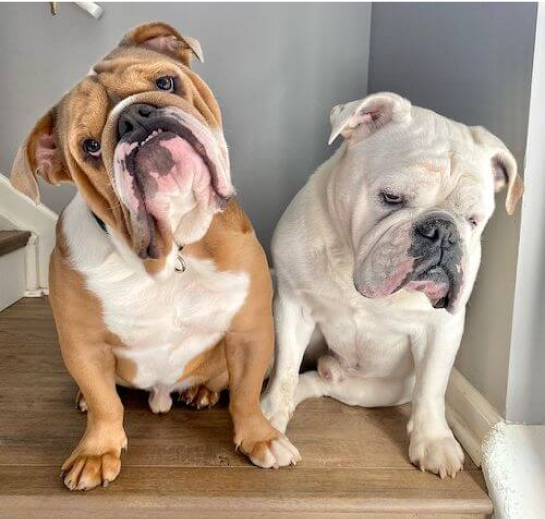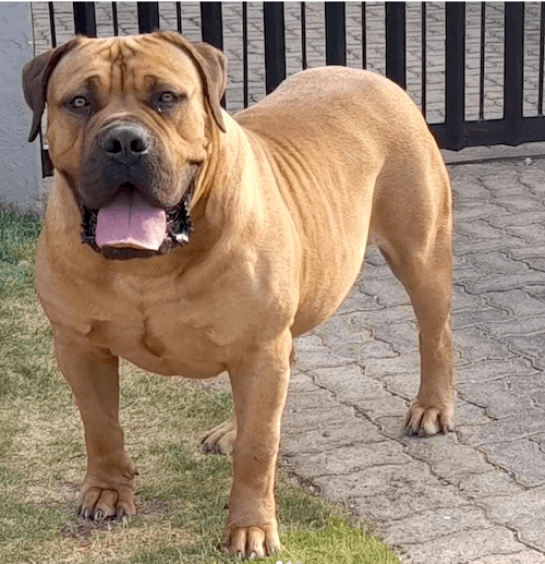Last Updated: 07/05/2025
Bullmastiff Complete Breed Guide
Want to know more about the Bullmastiff breed? Take a look at our Vet-written guide.
Author: Dr Maree Monaghan BVSc (Hons)
Reading Time: 45 minutes - long read
| Breed size: | Place of origin: | Other names: |
| Giant | England | Mastiff |
| Breed group: | Energy level: | Weight range: |
| Utility | Low to moderate | Males 50-59kg, Females 41-50kg |
| Life expectancy: | Tendency to bark: | Height range: |
| 7-10 years | Low | Males 64-69cm, Females 61-66cm at shoulder |
| Drool factor: | Coat length: | Colours: |
| High | Short | Any shade of brindle, fawn or red Black muzzle essential. |
| Shedding factor: | Overall grooming needs: | Social needs: |
| Low | Low | Highly intelligent and happiest when with their family |
How big do Bullmastiffs get?Adult female Bullmastiffs can weigh between 41-50kg and grow to 61-66cm at the shoulders. Adult male Bullmastiffs have an average weight between 50-59kg and stand 64 - 69cm at the shoulders. |
Do Bullmastiffs shed?Bullmastiffs are considered low shedders as they have a short, dense coat. It is recommended to brush them twice a week and bath them every 5-7 weeks, and of course feed a high quality diet to keep their fur silky and smooth. |
How much does a Bullmastiff cost?Purebred Bullmastiff puppies vary considerably in price, depending on the quality of the parents. You can expect to pay up to $3,000+ for a healthy, sound puppy from parents who have been tested for several different diseases and conformation problems, such as hip dysplasia. Mastiff and Mastiff crosses are often available at animal shelters, so it is always worth checking your local rescue centres first - not only will this likely be cheaper than purchasing a dog from a breeder, but you will be saving a life! We recommend contacting Bullmastiff Rescue Australia if you are interested in rescuing. |
Are Bullmastiffs good pets?Bullmastiffs are very social dogs who crave attention from humans that they know. This calm, easy going nature is rarely shown to strangers however, making them excellent guard dogs. Bullmastiffs do not like to share their family with cats and other dogs and are not recommended if you already have pets. The other factor to consider is that Bullmastiffs are world champion droolers! You need to have a ready supply of drool towels at hand if you are going to welcome one of the drooly giants into your home. |
How long do Bullmastiffs live?The average life expectancy of Bullmastiff is between 7-10 years. As with any breed, they will live much longer if you feed them a premium quality diet, never let them become overweight, and keep their teeth in top condition! |
Do Bullmastiffs bark a lot?Bullmastiffs make excellent watch dogs and will bark at strangers, however their overall tendency to bark is low. To reduce your Bullmastiff's barking, ensure you train with positive reinforcement from a young age and reduce problem behaviours before they begin! |
How do I choose a Bullmastiff breeder?When looking for a Bullmastiff, your options are to: a) adopt from a rescue such as Bullmastiff Rescue Australia (this is our top recommendation!) b) buy from an or online marketplace or pet store (NOT recommended!), or c) Research a reputable breeder. Never purchase a puppy without inspecting the breeder's premises and asking the 10 Breeder Checklist Questions first. Good breeders socialise their animals, house them humanely, allow you to inspect their premises, and selectively breed healthy traits and good temperaments. Read our Guide to Finding a Good Breeder for more tips. |
Are Bullmastiffs good with kids?Bullmastiffs are gentle, protective and affectionate with children, provided the children are well behaved and have been taught how to respect dogs. They tend to walk away if they've had enough, so it's important your child gives them space when needed. However, the Bullmastiff's laid-back personality with family members is likely to change when faced with a stranger, as they tend to be rather suspicious of people outside the family. |
